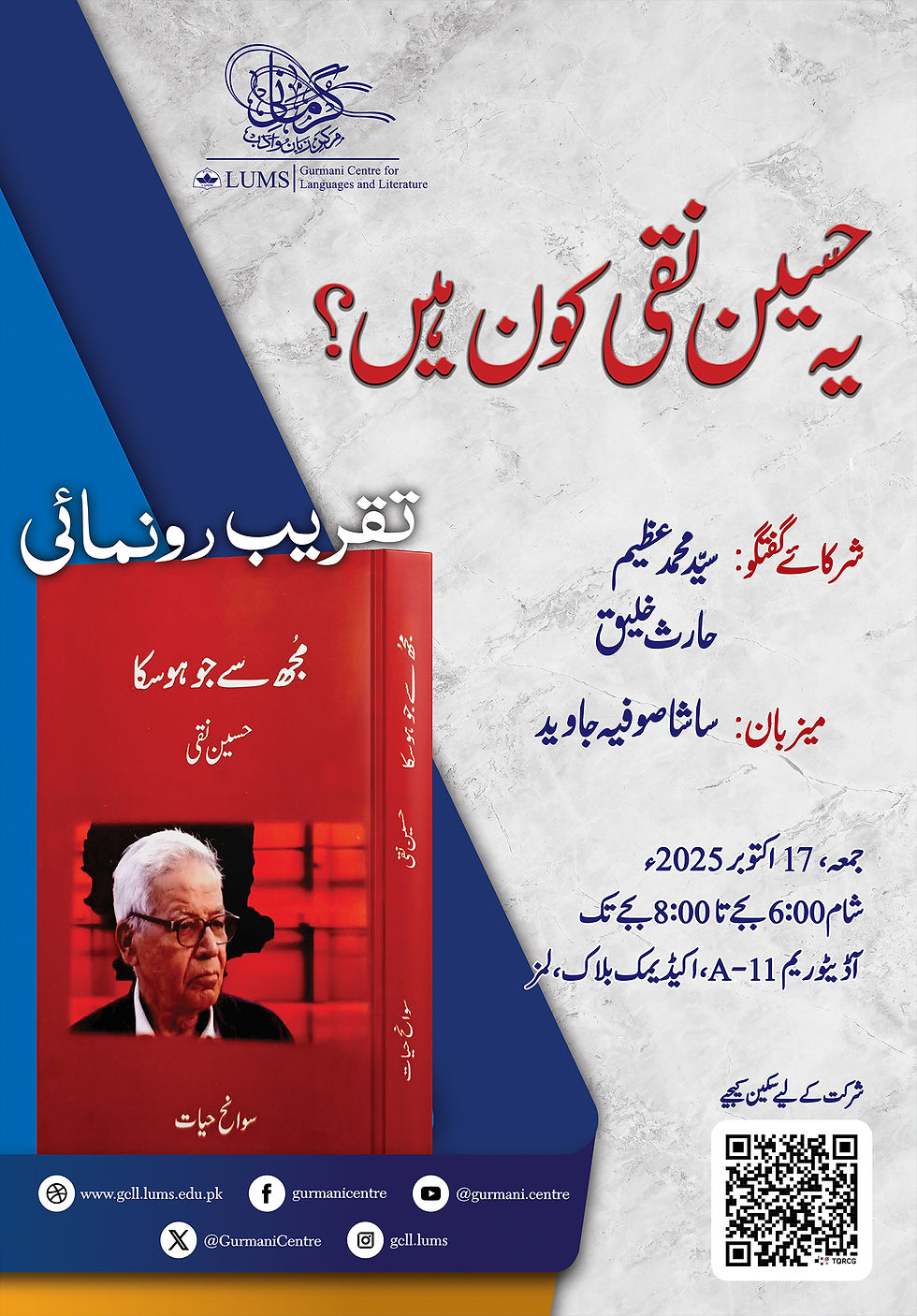“Ye Hussain Naqi Kaun Hain?”
- asadullah3
- Oct 23, 2025
- 2 min read
Friday, 17 October, 2025 | 6:00 - 8:00 PM | A-11 Auditorium, Academic Block, LUMS

The Gurmani Centre for Languages and Literature hosted a session titled "Ye Hussain Naqi Kaun Hain?" featuring Haris Khalique, Muhammad Azeem, and Hussain Naqi, himself. The session was moderated by Sasha Sofia Javed. The discussion focused on Mujh Se Jo Ho Saka — the autobiography of senior journalist and human rights activist Hussain Naqi.
The conversation situated Naqi’s narrative within the broader historical trajectory of Pakistan’s political and journalistic evolution. The speakers engaged with his account as both a personal testimony and a form of political historiography — one that documents the structural entanglements of media, power, and ideology in the postcolonial state. Naqi’s recollections were discussed as a means of understanding how journalism, dissent, and civic consciousness have been negotiated and often constrained within shifting authoritarian and democratic frameworks.
Naqi’s Punjabi resistance was also discussed particularly, his intellectual and linguistic interventions that sought to reclaim suppressed cultural and regional identities within the national discourse. The founding of the Punjabi daily Sajjan was read as a political act that disrupted centralised linguistic hierarchies and asserted the legitimacy of vernacular knowledge as a mode of resistance.
Haris Khalique also referred to Jurat-e-Inkaar, compiled by Dr Syed Jaffar Ahmed, as an important complementary work that further contextualises Naqi’s life within the longer history of journalism and democratic struggle in Pakistan. The reference opened up a broader reflection on how such works collectively contribute to the archive of progressive thought in Pakistan — documenting resistance not as a momentary act but as a sustained intellectual practice.
Through this discussion, the panel examined Hussain Naqi’s legacy as one that problematises the relationship between journalism and the state and foregrounds the ethical imperatives of truth-telling in conditions of political constraint. His autobiography, they suggested, is less a self-narrative than a sociopolitical document — a testimony to how individual conviction can become a lens for reading collective histories.



















